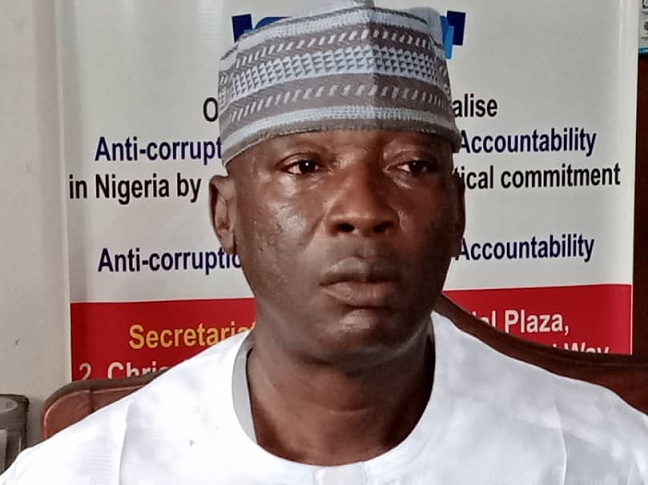In the intricate theatre of Kogi State politics, two worlds co-exist uneasily — Kogi East, the land of ancient thrones and tested minds, and the larger Kogi State, a confluence where power has too often tilted toward control rather than collaboration. The dissonance between the two is not merely geographical; it is psychological. It is the difference between Douglas McGregor’s Theory X and Theory Y — between coercion and cooperation, suspicion and trust, domination and development.
McGregor once observed that “the view which management holds of people determines the way they will be treated.” That axiom mirrors the political soul of Kogi. Across the state, governance often mirrors Theory X — leaders assume that citizens are passive, dependent, and must be ruled with firm hands. Power becomes a fortress, not a platform. But in Kogi East, a sub-region with deep intellectual ancestry and moral discipline, the people still recall the leadership of elders who governed with empathy and dialogue — a model closer to Theory Y, which sees people as creative, capable, and self-motivated when trusted.
The disparity has grown with time. In Kogi State’s central corridors of authority, leadership is frequently transactional, measured by loyalty rather than legacy. Political energy is expended on control, not creativity. This is the Theory X syndrome — where power is hoarded, voices are silenced, and the people are treated as subjects rather than citizens. It assumes that governance must compel rather than convince, and that development is a privilege dispensed from the top rather than a partnership cultivated from below.
McGregor cautioned that such thinking leads to stagnation: “If you treat people as lazy, you will create laziness; if you treat them as capable, you will release capability.” That statement captures the moral divergence between Kogi East and the broader state power structure. The East has long been home to scholars, administrators, and spiritual minds who see leadership as stewardship — a sacred trust. In traditional Igala thought, leadership was communal; the king was the first servant, not the final authority. The elders said, “The tree that shades the village does not compete with the sun.” Power was light, not heat. But under the broader state’s Theory X culture, leadership has become extraction, not empowerment — a contest for control, not a covenant for progress.
Kogi East’s potential remains immense — rich in people, history, and intellect — yet its progress lags behind because the governing philosophy at the state level still functions as a closed system. The creative energy of the East is often subdued beneath by politica mafias and bureaucratic suspicion. Innovation is perceived as rebellion, and initiative as threat. Theory X politics fears independent minds; Theory Y politics nurtures them. Until this psychological shift occurs, the East will remain an underused powerhouse, its people celebrated in speeches but sidelined in strategy.
In the moral geography of governance, Kogi East symbolizes Theory Y: leadership rooted in trust, collaboration, and shared destiny. The region’s ancestral philosophy aligns with McGregor’s vision of participatory management. Traditional councils operated through consensus; decisions were debated, not dictated. A popular Igala proverb reminds us, “Wisdom is like fire; people take it from one another.” This communal ethic reflects the very essence of democratic maturity — leadership that grows by listening.
By contrast, much of Kogi State’s political center still reflects Theory X: authority concentrated in personalities, systems driven by control rather than service, and governance trapped in a psychology of mistrust. This disparity has produced a developmental imbalance — an uneven rhythm where the East’s human capital is underutilized while centralized power grows rigid. Political evolution in Kogi State will only occur when this gap in leadership philosophy is bridged.
The solution is not rebellion, but reorientation — a migration from control to cooperation, from command to conscience. McGregor emphasized that “commitment to organizational goals arises when individual needs and institutional purpose align.” Kogi East offers that possibility — a reservoir of educated youth, resourceful farmers, and visionary elders who only require an environment of trust to flourish. A Theory Y governance approach would transform this potential into performance, converting dormant talents into collective progress.
As the Igala proverb says, “No single hand can lift the calabash of wisdom.” The entire state must learn to share the burden of development. The leadership of Kogi State must understand that the prosperity of the East is not a regional favour but a state imperative. A state that ignores its intellectual heart weakens its own body. Transformation will only take root when the ruling psychology shifts — when leaders begin to see citizens not as dependents but as partners.
Kogi East must therefore insist not on privilege, but on partnership — a renewal of the social covenant between governance and growth. It must continue to model Theory Y leadership from within — nurturing transparency, mentoring youths, and fostering communal innovation. For as McGregor declared, “Leadership is not the exercise of power, but the release of potential.”
The winds of history are shifting. Across Nigeria, citizens are demanding a new consciousness in governance — one that blends intellect with empathy, strength with service. Kogi East stands ready, not as a rebellious province, but as a prophetic mirror reflecting what the state could become if it chooses transformation over tyranny, trust over fear.
In the end, the contrast is simple yet profound: while Kogi State’s broader political culture still dances to the rigid rhythm of Theory X, Kogi East’s spirit beats with the liberating pulse of Theory Y. And until the two learn to dance in harmony — until power learns to trust its own people — development will remain an unfinished symphony.
As the Igala elders remind us, “When the moon shares its light, the night loses its fear.” It is time for Kogi’s leaders to let the light of the East shine — not as competition, but as correction; not as opposition, but as illumination. Only then will Kogi’s governance evolve from command to communion, from control to collective glory.
– Inah Boniface Ocholi writes from Ayah – Igalamela/Odolu LGA, Kogi state.
08152094428 (SMS Only)




